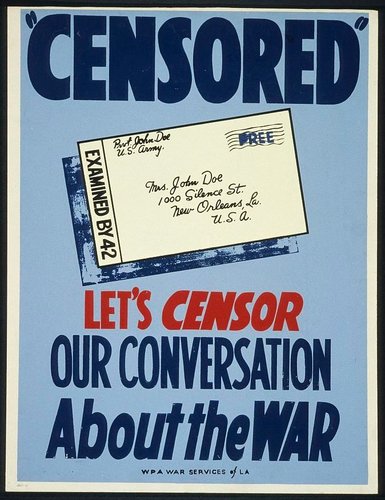
Yet recent presidential administrations, frustrated in their attempts to stanch such violators of the rules, have used the statute to threaten and even prosecute journalists for doing their job of merely reporting the leaked information to the public. Elected politicians and civil service officials regularly leak information to the media, some of it very sensitive. More recently, using the Espionage Act to abuse the First Amendment has taken another form.
#Espionage act of 1917 free
But in American history, warsoften suspect onesregularly have excused bald violations of the civil liberties that make America a free country. Using this statute for this end was a clear violation of the First Amendment by the blatant restriction of free speech. meddling in a European war in violation of the Monroe Doctrine would undermine the mobilization of resources and manpower to prosecute the conflict. The politicians feared that such opposition to the questionable first-time U.S. President Woodrow Wilson, who flagrantly violated American civil liberties in many ways during the war, and Congress really were targeting anti-war groups that were urging industrial workers not to support the war or young men to resist the draft.

In fact, even when the Act was passed in 1917, during World War I, it started out with hyperbole in the title. Yet at least so far, Trump has not been charged with trying to sell them to foreign countries or use them to blackmail those nations for cashactions the public has come to associate with the word espionage. Although the statute was written before Harry Trumans executive order in 1950 that established a ranked classification system for the degree of restriction on any particular document (for example, Confidential, Secret, or Top Secret), the so-marked documents allegedly purloined to Mar-a-Lago would clearly fit this category, as could even some unclassified items. The law bans obtaining national defense information with intent or reason to believe that it may be used for injury to the United States or to the advantage of any foreign nation. For the public, the most arresting (no pun intended) of these allegedly violated statutes is the Espionage Act of 1917.ĭespite its alarming name, the Espionage Act covers more than just illegal spying against America.

Single Issues of The Independent ReviewĪccording to the FBIs court-approved search warrant for Donald Trumps Mar-a-Lago resort, probable cause existed to believe Donald Trump may have violated three laws by seemingly stealing 300 classified government documents from the White House, some extremely sensitive, and squirreling them away in his Florida mansion.International Economics and Development.


 0 kommentar(er)
0 kommentar(er)
